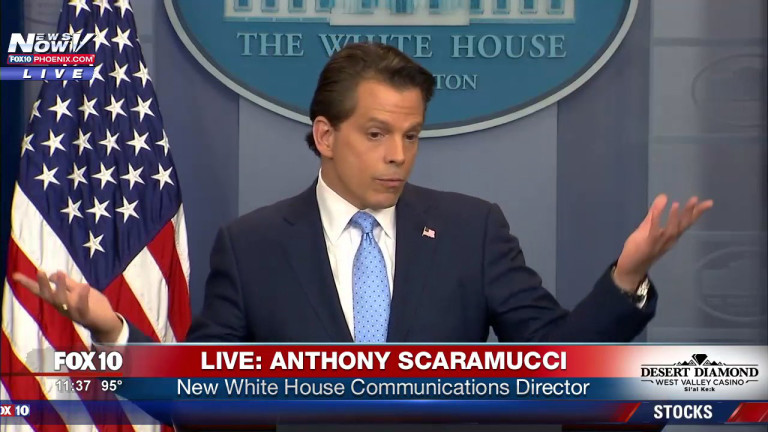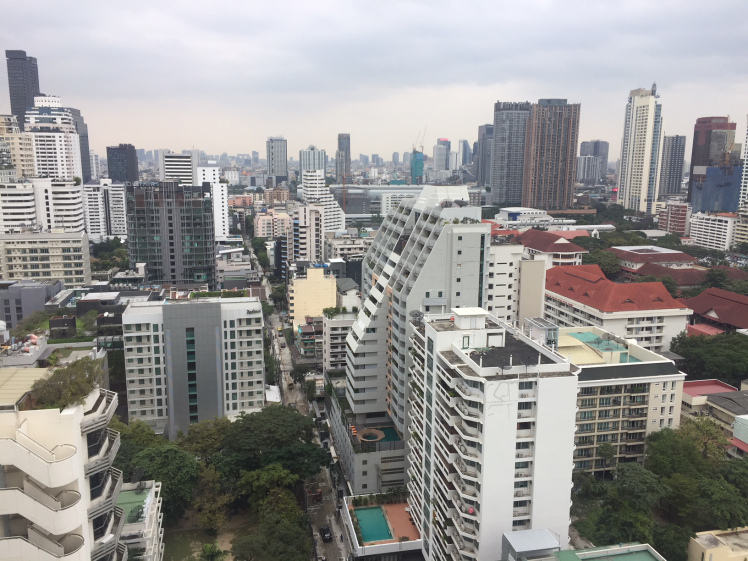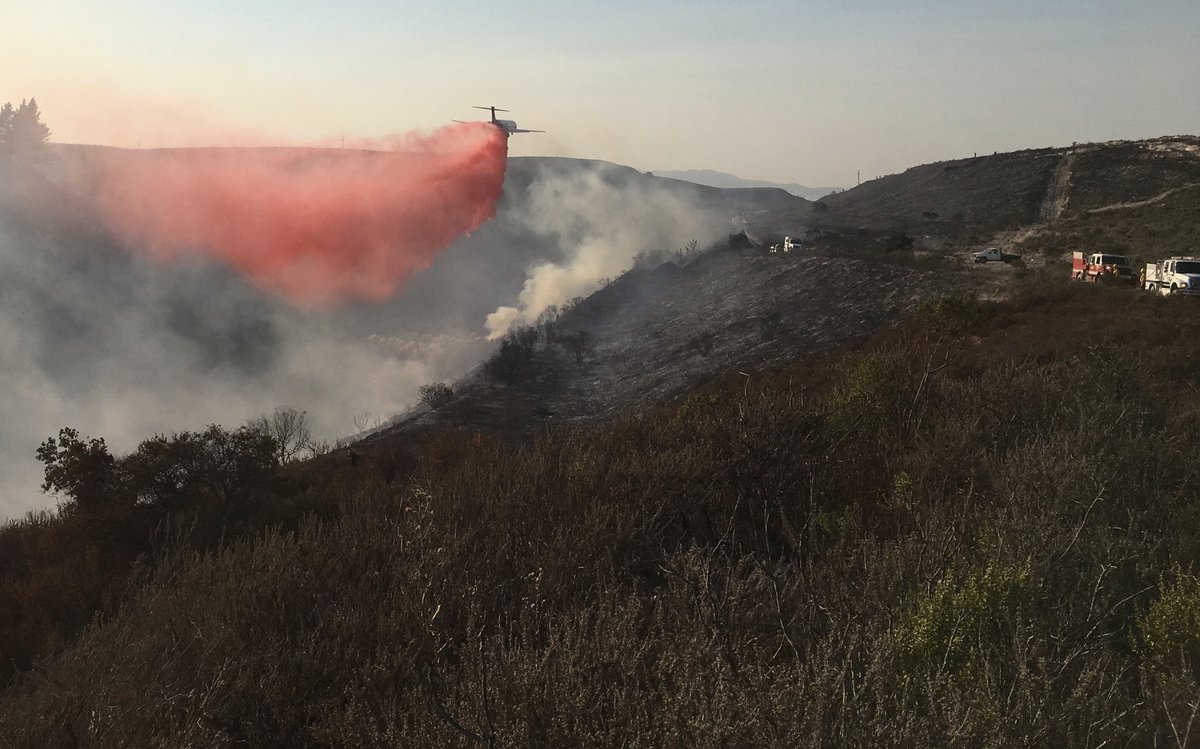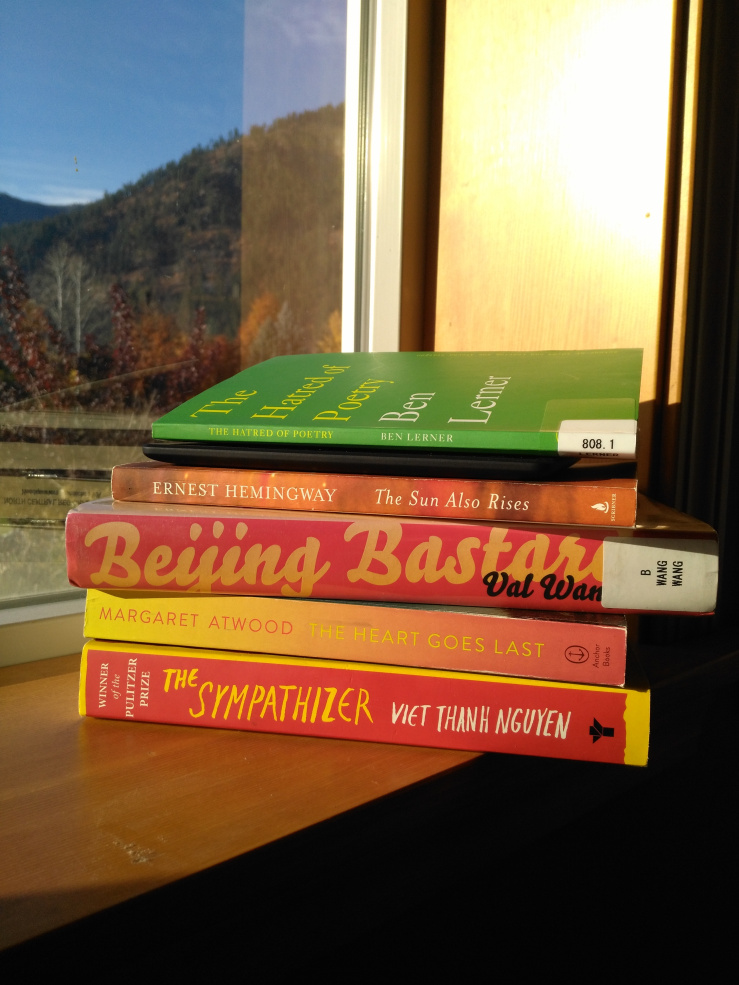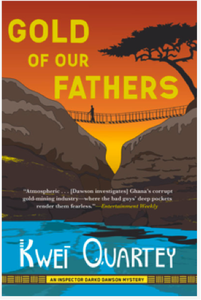
Today’s review is courtesy of Tom Priestly, a regular reader of Crimepieces and a connoisseur of crime fiction. He’s reviewing an author I haven’t read before but, as usual, Tom’s review makes a compelling argument for me to read it!
Gold of Our Fathers is Kwei Quartey’s fourth crime novel; they all feature detective Darko Dawson and are set in Ghana. As a detective fiction aficionado and an African of sorts myself (with just the first six years of my life spent in Uganda and Kenya) I am always on the lookout for crime novels from Sub-Saharan Africa; but apart from excellent South African ones, they are few. So, finding the series by Quartey was a triumph, for all four of his Dawsons to date are very good, and they get better every time. The plots are well-constructed, the characters very real, and — one of the series’ best features — they present extremely interesting insights into modern life in Ghana. What is especially enlightening is the scope — each one so far has had a different setting: Wife of the Gods about traditional beliefs in a small village the Volta region in the South-East; Children of the Street, life in the slums and the very rich districts of the capital, Accra; Murder at Cape Three Points, at an oil rig off the South-West coast; and the book reviewed, about open-cast gold mining in the Western, Ashanti region. Every time, the traditions and beliefs, the buildings, the clothing, the food are all carefully described, and I now know more about Ghana than very many other countries.
Quartey writes about Ghanaians and foreigners with equal objectivity. His first two ‘Dawsons’ feature locals only, the next two show some of the exploitation by people from overseas. The oil rigs are the result of Western business intrusions; the gold mines are almost exclusively concerns of Chinese interests, and some of the suspects in this case are Chinese — legal and illegal residents. Other possibles on Dawson’s list this time are Ashanti villagers who sacrifice the ancestral farms for better earnings (life otherwise being hand-to-mouth), and decidedly shady if not corrupt members of the local police. Meanwhile, Dawson has to cope with moving his job and his family to this new centre and organizing an office which is in complete chaos. He is no saint but his honesty stands out, as does his methodical approach to sifting through the list of suspects and the many clues. Quartey can be faulted, in this novel as in previous ones, by providing his leading detective with a chance flash of insight from a remark, on this occasion by both his young sons; but this is a common fault among writers. Unusual among fictional detectives are his good relationships with his immediate family and his (almost) complete non-dependence on alcohol or other drugs.
According to a reviewer (of another author) in The New York Times Book Review, “Ever since the days of Agatha Christie, the great divide in the British detective story has been between plot and character,” implying that most or all British crime writers since Christie have not properly combined both. I disagree: she died 40 years ago, and given say five minutes I could produce a long list as a strong counterargument. My point here, however, is that Kwei Quartey does pay equal and suficient attention to both plot and character, and combines them with a third element, one that for me personally is almost essential: a strong sense of place. After reading — as a single example — two books by Jim Kelly, I feel almost at home in the part of Norfolk along the coast eastwards from King’s Lynn: if I ever go there I will recognize the sounds, the smells, the views. And this is true of Quartey’s Ghana also.
Readers who may be put off by too many strange names and phrases and foodstuffs in unknown languages can be reassured: Quartey provides what used to be traditional — a list of characters, at the front — and also a glossary of quoted words in three of the languages of Ghana. They will find a narrative which moves briskly along, a little excitement, and a well-devised set of clues. Kwei Quartey is a doctor in California: I very much look forward to his next, Death by His Grace, about religious (mal)practices in Accra, and hope he can find time away from the cares of his practice for more trips back home to Ghana and for writing!
Advertisements Share this:
